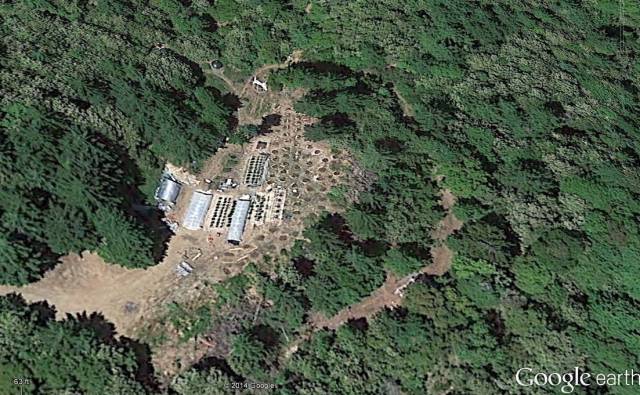Press release from the California Department of Fish & Wildlife:
July 20, 2015
CDFW, Partner Agencies Conclude Operation Yurok in Humboldt County
Marijuana Eradication Effort Focused on Misuse of Water and Habitat
Officers from the California Department of Fish and Wildlife (CDFW) recently participated in a large-scale, multi-agency operation to address the devastating effects of illegal marijuana cultivation on fish, wildlife and the environment in northern California’s watersheds. The four-day mission concluded Thursday, July 16.
Allied law enforcement agencies including the State Water Resources Control Board, Yurok Tribal Police, Humboldt County Sheriff’s Office and federal law enforcement teamed with CDFW wildlife officers to serve dozens of search warrants, investigate pollution and water diversion crimes, and eradicate numerous marijuana plants as part of the joint effort dubbed “Operation Yurok.”
More than 100 environmental violations of the Fish and Game Code were discovered and eight suspects were arrested. Charges are pending for additional suspects.
“This operation was about more than just the criminality of marijuana cultivation,” said Lieutenant DeWayne Little of CDFW’s Watershed Enforcement Team (WET). “At its roots, it was about protection of the environment.” Created by CDFW in the last year, WET is comprised of both law enforcement officers and biologists, whose primary mission is to take an all-encompassing approach to investigating and protecting waterways from diversion, obstructions, alteration, pollution and litter.
During this period of unprecedented drought, water conservation is gravely important. An average mature marijuana plant consumes an estimated six to 12 gallons of water per day.
“Operation Yurok” teams eradicated more than 29,000 thirsty marijuana plants from the area, which equates to hundreds of thousands of gallons of water per day that will no longer be diverted and prevented from feeding the nearby Trinity River.
The Trinity River is considered by the locals to be the lifeline for many people. Water flows from the river must be great enough to sustain local drinking water needs and support successful salmon runs, which equate to a food source for the local Yurok tribe. Yurok Tribal members and other locals have expressed great concern about illegal marijuana grows in the area, due to the Trinity River’s historic low levels.
_______________________________________________________
See my earlier post about Pot Farms on Reservations, which discusses the Yurok lands.


